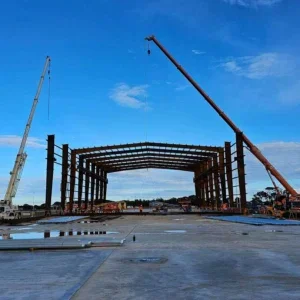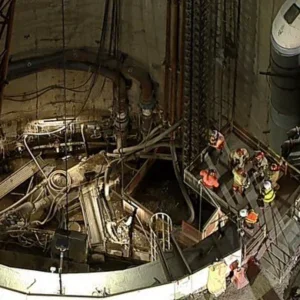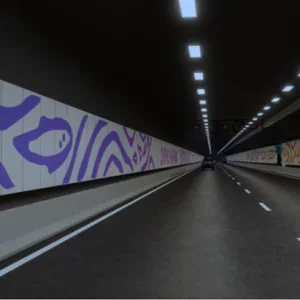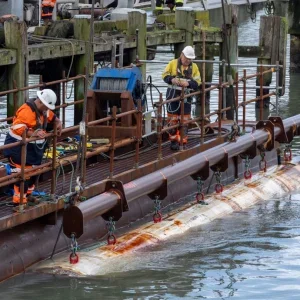The German government is currently studying the cost implications of a linear collider for scientific experiments involving high-energy physics, in Hamburg. Called TESLA (Tera electron volt Energy Super-conducting Linear Accelerator), the project is spilt into two main separate contracts: a 33km long, 5m i.d. linear collider tunnel; and a 8km long x-ray laser tunnel, also 5m diameter. There are a further 4km of tunnelling works.
Swiss consultants, Amberg, in JV with local Hamburg consultancy WTM (Windels, Timm, Morgen), has completed the preliminary design for the linear collider and the x-ray laboratory, for the client DESY (Deutsches Elektronen-Synchrotron).
The x-ray laboratory, with the 8km long tunnel, is the contract most likely to go ahead. Rolf Stadelmann, project manager for consultant Amberg, told T&TI that Germany will probably provide the required funds in 2004, for a likely construction start in 2005. It still requires the detailed design and the preparation of tender documents (for which Amberg hopes to be invited to bid), but because it is a European project – with fewer interested parties – it’s future looks certain.
Stadelmann said that most of it will be bored with a hydro-shield TBM, and the rest will be cut and cover. Civils work will cost approximately US$160M.
The likelihood of the 33km long linear collider going ahead, however, is more remote, especially in Germany. As an international project, more countries have a say in its future. “Nobody knows what will happen,” Stadelmann said.
Forty-nine institutions are funding the project from 12 different countries, which include: Armenia, China, Finland, France, Germany, Italy, Poland, Russia, Spain, Switzerland, the UK and the US.
The problem with the linear collider is that no one knows where to build it and how to share the cost. As the agreement stands, the country in which the collider is built will have to pay the construction costs. Whereas, the installation costs will be shared by everyone.
Although the US may be a likely home for the project, Stadelmann was bullish about the project remaining in Germany. He said the German authorities can swiftly start the plan approval procedure, the geological investigations have already been undertaken, and the local population has been consulted – apparently, it has a lot of local support.
If the tunnel is constructed in Hamburg, it will also be bored with a hydro-shield TBM through sand and marl containing pockets of ground water. The leakage rate in the final tunnel could cause problems because of the sensitive equipment that will be housed within it. Also, the logistics could prove to be difficult – for instance, 5km will be bored without a shaft. Cost of civils work is estimated to be between US$1.2bn and US$1.6bn.







